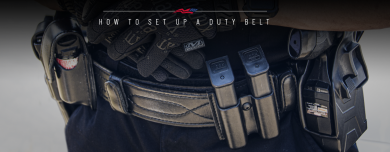
In previous articles, I have written about some of the specific duties that I have performed as a law enforcement chaplain. As I was considering my next topic to pursue, I realized that not every agency may have had the luxury of having a chaplain on staff. Therefore, you may not understand the role of a chaplain serving within your agency. I hope this article helps to deepen your understanding.
Serve and Serve With Compassion
The primary role of a law enforcement chaplain is similar to that of most sworn officers; they are with your agency to serve. It is inherent to the position, whether volunteer or paid, to serve and to serve with compassion. It is, regardless of any religious affiliation, a ministry position. The difference between the sworn officer’s role and the chaplain’s role is that the chaplain is with the agency to serve the officers more so than the public. When an officer of the agency requests them to, the chaplain would certainly assist with the public; however, their first priority is always the department’s personnel.
For example: Imagine that an officer involved shooting occurs. The officer is unharmed, but the assailant was injured or even killed. The chaplain’s first priority is the officer involved in the shooting, not the victim or his or her family. This could seem cold or calloused to an uninformed observer, but it is the correct order. The chaplain will be trying to provide encouragement and counseling, if necessary, to the officer involved and even their families. Those are the individuals whom he or she is called to serve first and foremost.
To further develop this scenario, let’s assume the officer is injured and the assailant is also injured, rather than killed. Again, the chaplain’s first priority is to the officer, his family, and his fellow officers. Then, and only if they can do so without alienating their men and women, would the chaplain make themselves available to the assailant and his or her family. In the event that it would create some animosity or disrespect between the chaplain and those he or she serves within the department, then it is incumbent upon the chaplain to seek counseling for them from an outside source.
The chaplain’s role is not only in the event of an officer involved incident. The chaplain can be on-call and available for various events in the officer’s personal life or professional life. Many times a chaplain, depending on the jurisdiction’s regulations, will do a ride along with an on-duty officer. The purpose of a ride along shift is more than to simply keep the officer company while on duty; it is to get to know the officer. This allows the chaplain to be better equipped to assist an officer when the need arises.
Not About Evangelism
I have never used my time as a chaplain to evangelize or make a new convert. I have always used it as a time for my officers to become more comfortable in speaking with me in order to become more comfortable with whom they are. As an example: It is no secret to anyone reading this article that police officers not only hear some very colorful language, but they also on occasion use the same type of terminology. I have never chastised one of the officers I served or said anything regarding it. I am not on duty to judge them; I am there to offer support and provide hope that they will never really need me in the future.
Stay tuned next week when I elaborate further on the role of a law enforcement chaplain.
Disclaimer: The content in this article is the opinion of the writer and does not necessarily reflect the policies or opinions of US Patriot Tactical.






